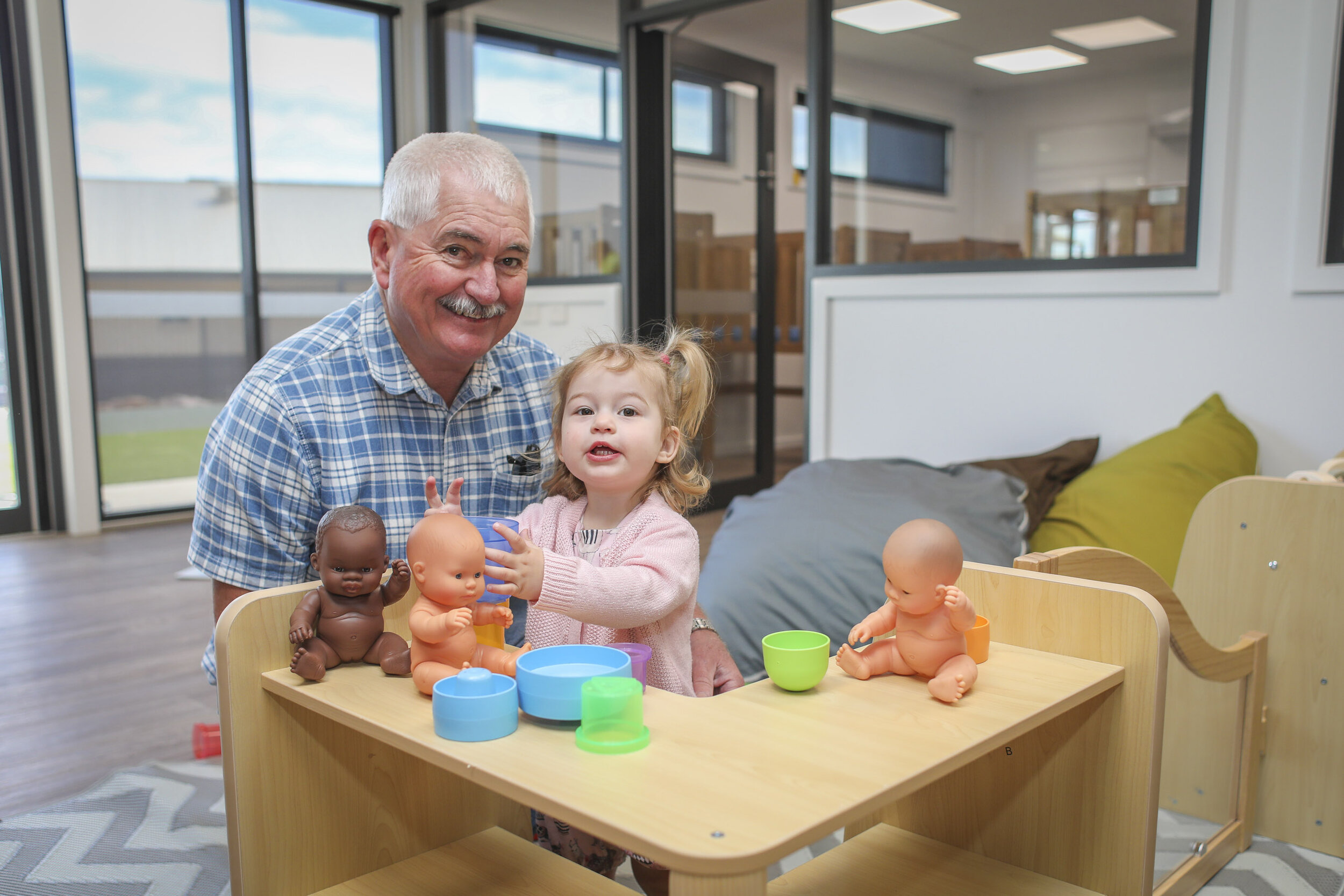
Intergenerational relationships promote positive experiences
Regular intergenerational activities with care recipients at Chaffey Aged Care.
Our Philosophy
Our Approach:
Children’s development is supported through intergenerational relationships.
We believe that intergenerational programs link younger and older generations, creating areas of mutual benefit, including a shared appreciation for diversity and the formation of close intergenerational relationships.
Intergenerational relationships promote positive experiences across the lifespan, enhance positive contact and decrease the social distance between generations. Intergenerational relationships build social capital and enhance the social and emotional skills of our children.
Our Children:
Our children are our greatest asset.
We believe that our children are our future. We place our children at the centre of all we do.
We partner with families to optimise the learning experience of our children and recognise that families are our children’s first and most influential teachers.
We recognise that partnerships with families are underpinned by a mutual understanding of expectations and that, respectful and reciprocal relationships provide children with a secure base for exploration, play and learning.
We model positive relationships and assist children to learn about their responsibility to others and to appreciate their connectedness and interdependence as learners.
Our Community:
We are invested in connection to our community.
We provide an environment and culture supportive of the formation of intergenerational relationships and connection to our community.
We believe that community engagement has an immense impact on children’s wellbeing and learning, where experience of relationships and participation in community, assist children to develop and become contributors to their world.
Safety & Well Being:
We are invested in the safety and wellbeing
of our children.
We believe that secure, respectful and reciprocal relationships provide children with a secure base for exploration and learning.
The safety and wellbeing of our children is central to providing an environment conducive to effective learning where children can learn from daily routines, play, experiences and interactions with others.
We respond to every child’s individual needs and foster and promote an environment where children feel a sense of belonging, are happy, secure and socially successful.
Sustainability:
We are committed to a sustainable future
for our children.
Our children are our nation’s emerging decision-makers. It is our responsibility to share with them the significance of caring for and protecting our environment to create a sustainable future.
We model sustainable environmental practices and incorporate these in our centre routines and learning programs to promote an awareness of environmental sustainability.
Pedagogy:
Children are capable learners with individual learning styles.
Intentional teaching recognises that learning occurs in a social context and that interactions and conversations form the basis for children’s learning.
We believe both indoor and outdoor learning environments support all aspects of children’s learning and invite conversation between child, educator, family and broader community.
Learning environments promote opportunity for sustainable shared thinking and collaborative learning. Our learning spaces invite open-ended interaction, spontaneity, risk-taking, exploration, discovery and connection with nature and others.
We believe education is enhanced through collaboration between the educator, families and children. Learning outcomes are achieved through individual planning and guiding children’s learning.
Learning is enhanced through the use of frameworks to guide educators in curriculum decision-making and as a part of an ongoing cycle to assist in planning, implementation and evaluating learning outcomes.
Educators intentionally scaffold children’s understanding and learning by making use of spontaneous and intentional teachable moments to extend children’s learning.
Educators use reflective practice as a form of ongoing learning engaging with professional peers around matters of philosophy, ethics and practice.
Culture:
Cultural competency is built on respectful relationships and embracing cultural differences.
We believe that culture is acquired, shared and defines our core values. Being culturally competent is about building respectful relationships where we value, support, promote and embrace cultural difference.
We promote cultural competency through enabling children to connect and interact with others and to explore cultural similarities and differences in a positive and supported environment.



